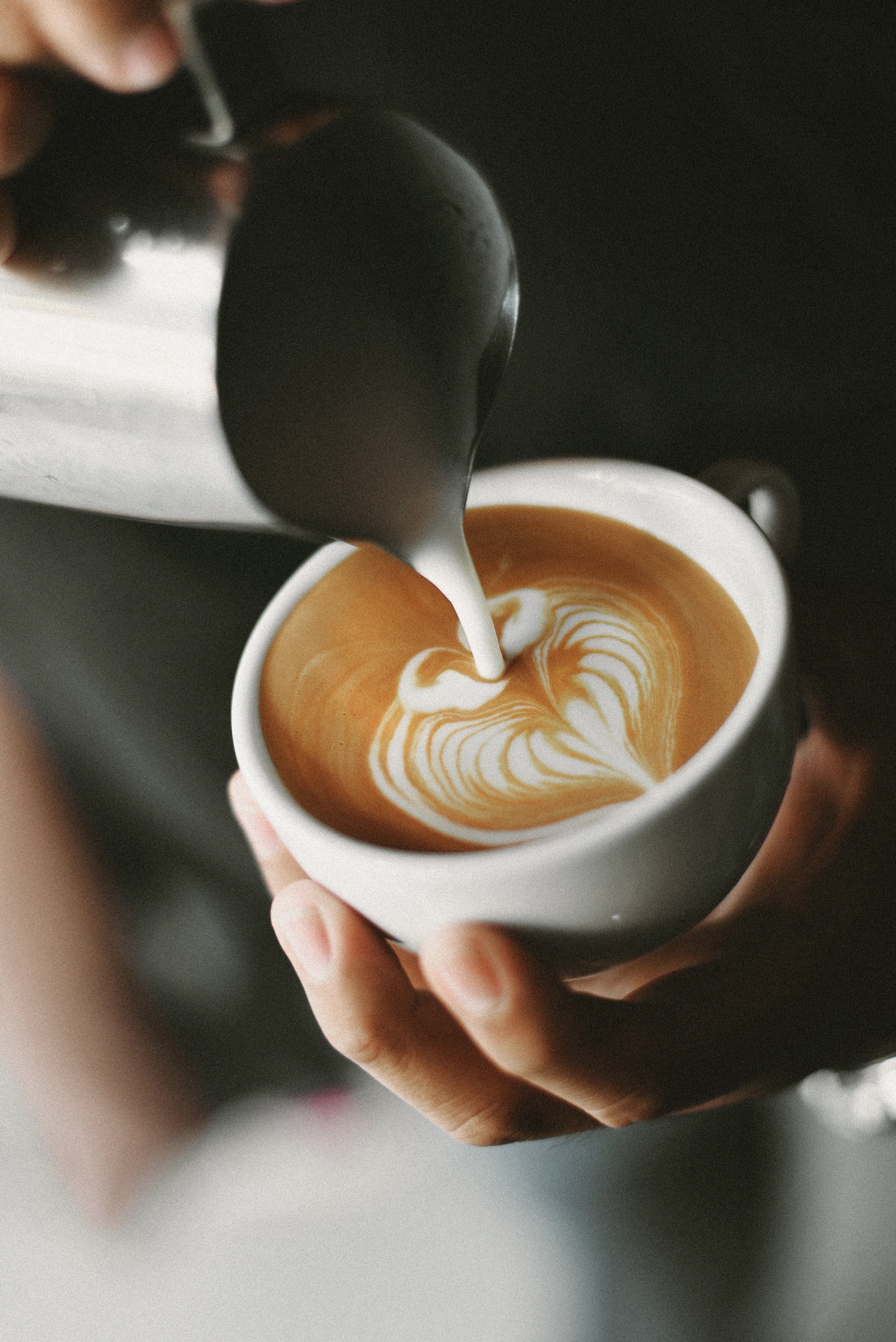Specialty coffee has been a buzzword in the coffee industry for several decades now, as it’s gained popularity as a high-quality and somewhat niche coffee. But, it's more than just a quality label. There's a whole story behind a coffee bean, from handpicking to growing, processing, roasting, and brewing, all following the highest standards. But what exactly does this specialty coffee mean, what kind of coffee qualifies for it and why should every Better Bread visitor give Da Matteo coffee a try at our bakeries? In this blog post, we'll dive into the details.
What is specialty coffee?
Specialty coffee is the highest quality coffee available and this label encompasses the entire coffee bean production process. It is coffee that has been evaluated by the Specialty Coffee Association (SCA) based on strict conditions and regulations and has received more than 80 points out of 100. For example, specialty coffees that have received 90 to 100 points are considered excellent, those with 85 to 89.99 points are considered outstanding, and those with 80 to 84.99 points are considered very good. It is estimated that only about 10% of all coffee produced reaches the specialty coffee label.
The term was first used in 1974 by American coffee industry legend Erna Knutsen in a magazine to describe beans of the best flavor which are produced in special micro-climates. Today, specialty coffee means that the coffee production and brewing process can be traced and has been at the highest standards starting from the plantations and the first coffee fruit, which visually resembles cherries, up to the coffee cup in your hands. This coffee is hand-picked, and only ripe coffee fruits are selected. This is the closest way to get all the best coffee properties from a coffee fruit. Specialty coffee is grown in small farms, usually on mountains and high altitudes, and is not produced using chemicals or environmentally harmful technologies.
80 points and cupping
Determining if a coffee deserves a spot in the specialty class requires a rigorous process of tasting, starting with a cupping evaluation carried out by a seasoned expert. Cupping, derived from the word "cup," is the standard method for evaluating coffee. But before this crucial step, the green, unroasted coffee is also closely examined for defects, with its color and aroma closely monitored.
To ensure that any coffee is evaluated under the same conditions and given "fair play" compared to other coffees, strict guidelines have been developed even for the cupping expert. The environment in which the cupping takes place must also be strictly regulated; the rooms must be quiet, equally well-lit, clean, and without any environmental fragrances that may interfere with the expert's evaluation of the coffee.
In the cupping process, the coffee must be roasted no more than 24 hours before and then allowed to rest for at least 8 hours. Roasting takes place for 8 to 12 minutes. To ensure the cupping process is consistent, strict regulations are in place regarding the amount of water used, its total dissolved solid levels, temperature, and other factors such as the amount of coffee, grind size, and brew time.
During cupping, at least five coffee samples are evaluated. Experts evaluate its aroma/fragrance, taste, aftertaste, acidity, balance, sweetness, and uniformity. The results are then summed up, and if the coffee reaches 80 or more points on the scale, it is considered a specialty coffee.
Better Bread chooses da Matteo
At Better Bread, we've always known that we want to offer our customers and #betterbreadfamily only the best and most high-quality products. That's why for over two years now, you can try our specialty coffee, roasted in Sweden and brought to us from da Matteo coffee shop in Gothenburg.
The da Matteo company has been in operation since 1995 and has just as many years of experience in providing quality and delicious coffee in the Scandinavian coffee industry. The key to their quality lies in their craftsmanship and their transparent approach to coffee production and preparation.
Recently, we took a trip to Sweden for a well-deserved break and of course, we made a stop to visit our coffee roasters. Da Matteo is also a café where they bake fresh bread and pastries. Every café visitor can also witness the coffee-making process as the production area is open to visitors. Da Matteo sources their coffee from producers who care not only about the quality of the coffee but also about the farm itself and its workers. When the coffee arrives at the roastery, it is roasted in an environmentally-friendly roaster, producing an incredibly clean coffee.
The café is located in the coolest part of town, next to Acne Studio and the interior store Artilleriet. Da Matteo coffee is always of exceptional quality, and we especially liked their Americano, made just like we do – double espresso and a little hot water. Their philosophy aligns with ours – we want more people to drink good coffee.
To truly understand specialty coffee, reading about the processing and production just won't cut it – you have to come and taste it for yourself! We'll be waiting for you at Better Bread in Dzirnavu iela 31 or Āgenskalna Market.
